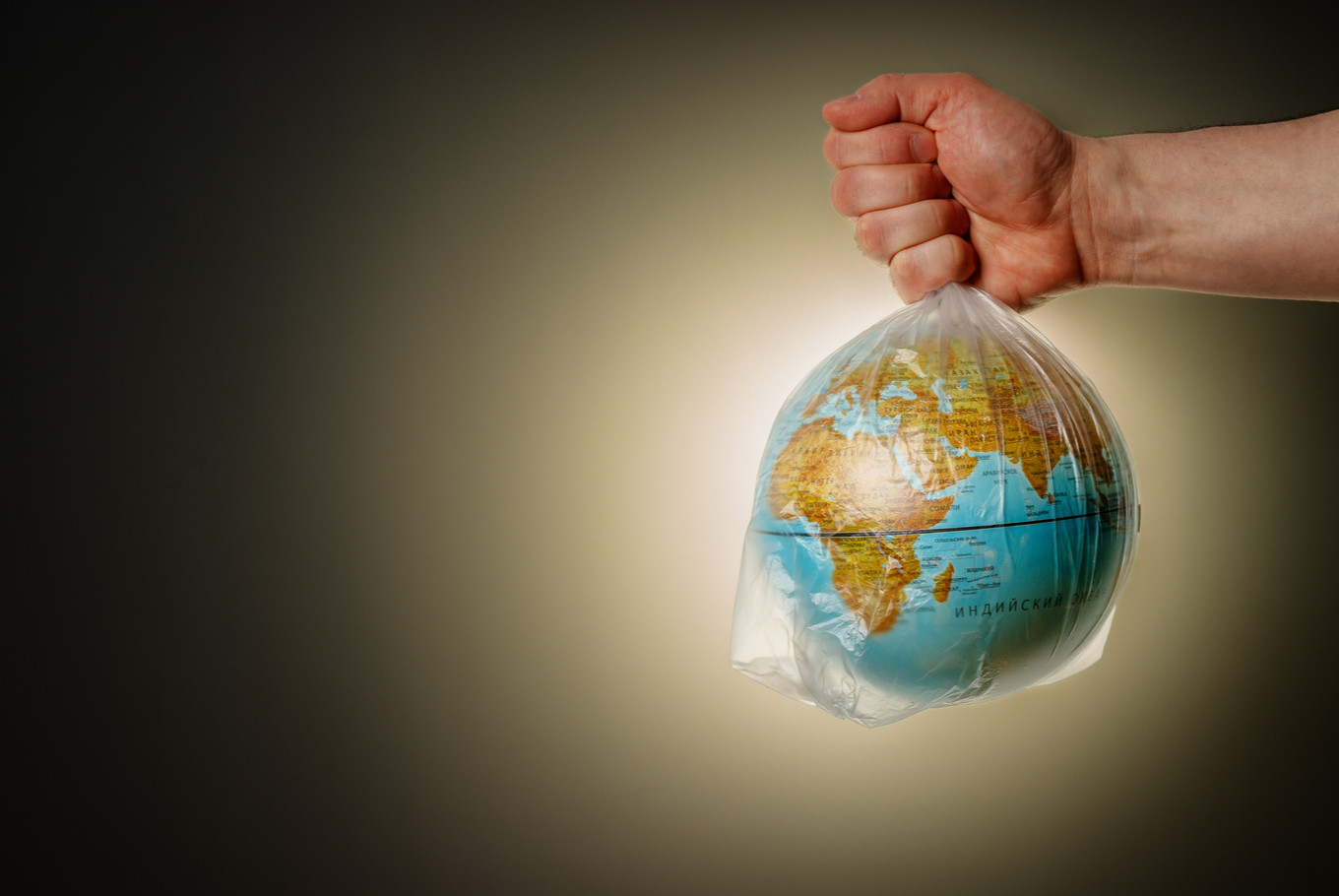Popular Reads
Top Results
Can't find what you're looking for?
View all search resultsPopular Reads
Top Results
Can't find what you're looking for?
View all search resultsUrbanChat: Eco-consciousness, a trend or a real change?
Change text size
Gift Premium Articles
to Anyone
E
arth Day fell on April 22, and just as in the past few years, many activities were held this year to show how far Mother Earth has decayed and what mankind can do to stop it.
In principle I wholeheartedly agree it should start from mankind, as much of the destruction inflicted upon Earth is manmade. The fashion industry has been one of the major targets of environmental criticism in recent years, chiefly because of the fast-fashion business model that produces a new collection every four to six weeks — depleting resources while creating a new pile of trash when barely worn clothes are discarded every four to six weeks. The labels not working on the fast-fashion business model have also come under fire for their use of toxic chemicals during production and single-use plastics for packaging/shipping.
Ali Charisma of the Indonesian Fashion Chamber (IFC) spoke about sustainability earlier this week as the IFC geared up for its annual Muslim Fashion Festival (Muffest). On the supply side the IFC calls on designers to creatively use and innovate with local textiles, making them more environmentally friendly to attract major textile makers to more eco-conscious options. On the demand side the IFC has put forward the Made in Indonesia campaign for middle-income consumers, the largest target market for cheap fast fashion.
While both actions are commendable, they play in the medium to long run timeframe. The Made in Indonesia awareness campaign has gone on for a long and while it has proudly gained ground with the affluent crowd, it is yet to make a considerable dent in the middle market with its limited purchasing power and often the heightened desire to look as stylish as the celebrities seen on screens.
As for textile innovations, quite a few Indonesian fashion designers have tinkered with textiles over the years -- the promising modest fashion label Restu Anggraini’s latest collection comes to mind — yet the innovations have often been aimed at comfort and aesthetics, while being unclear whether they are also more environmentally friendly.
This does not mean that all hope is lost. The IFC currently boasts 250 fashion designers nationwide; if at least within their organization they can continue to foster the discipline required to produce commercially viable and sustainable fashion, it may become the benchmark for other fashion associations in Indonesia to model their business on. The fourth Muffest is slated for May 1-4, it will be interesting to see which IFC designers have embarked on the sustainability fashion path.
One clothing label, Sejauh Mata Memandang, has started to walk the eco-fashion talk. In its latest collection unveiled on Earth Day, the label offers pieces made of Tencel, the best-known brand of lyocell, a form of rayon consisting of cellulose fiber made of wood pulp that according to the label’s founder Chitra Subyakto will degrade if buried in soil in about six months—tackling both resourcing and waste-management concerns. Instead of just playing in the background, trash management is featured proudly as the anchor of its latest collection.
Collaborating with the diving community and the Indonesian Plastic Bag Diet Movement (GIDKP), the label held an exhibition of single-use plastic materials found in Indonesian waters on a single beach cleanup and in the possession of participants on one Jakarta Car Free Day. An intact 19-year-old instant noodle packet found recently by a woman on another beach that went viral after being posted on Facebook, could be found at the end of the exhibition.
The staggering volume of plastic trash artfully decked in the exhibition hall was miniscule compared to the statistics provided by the GIDKP alongside it – mindboggling numbers of the millions of straws discarded daily or water bottles thrown out weekly.
The most terrifying numbers were provided by Tiza Mafira, the fierce force behind the GIDKP’s online petition to curtail plastic bag use in Jakarta’s modern markets, who shared that of all the plastic trash accumulated globally, only 14 percent is recycled (2 percent effectively), 40 percent piles up unprocessed in waste centers, while 32 percent is scattered around the globe including in the ocean.
Those who watched the Great Pacific Garbage Patch documentary will well remember how the plastic debris floating in the Pacific Ocean was estimated to be between the size of Texas and Russia –- depending on sampling conjectures — and how Indonesia was cited as one of the main culprits. Forget the Pacific; closer to home, Jakarta’s notorious Bantar Gebang dumpsite in Bekasi, West Java, will overflow in a few short years.
Yet again, just as the challenges faced by IFC above on promoting eco-fashion, the real battle for ocean trash management lies with ordinary people. It is one thing to “shame” urbanites with Rp 2 million (US$140.67) wetsuits into not polluting our blue-green waters while island-hopping, it is a tougher fight to educate fishermen not to throw plastics and cigarette butts into the water, fishermen’s wives not to pack lunches in Styrofoam for tourists, or fishermen’s children not to treat the waterfront as public toilets.
Perhaps, on selected urban patches, the awakening is strong and real. But will the awakening transcend into the much-needed mass movement, or will it be another short-lived hype that serves as an Instagrammable backdrop for the commercialization of stainless-steel straws, linen shopping bags and organic-dyed batiks that will soon be relegated once the momentum fades?
Only time will tell. In the meantime, the “Laut Kita” ocean trash exhibition, held in Plaza Indonesia until June 16th, offers you numbers and visuals to give you food for thought and, hopefully, reduce the amount of single-use plastics in your daily life. (ste)
Lynda Ibrahim is a Jakarta-based writer with a penchant for purple, pussycats and pop culture.











